Peking opera meets Italian opera
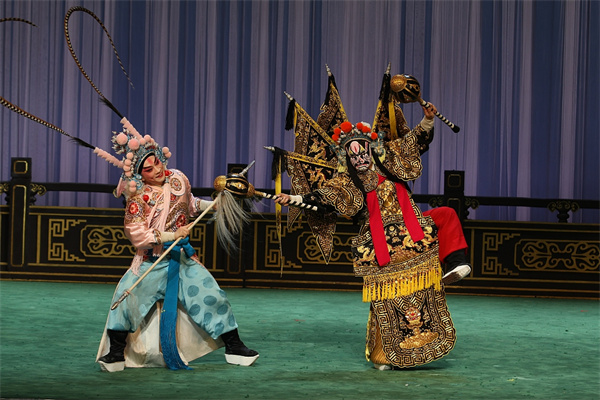
Young students perform the Peking opera Badachui in Wuhan on May 8, 2023.[Photo/CGTN]
Peking opera, inscribed in 2010 on the Representative List of the Intangible Cultural Heritage of Humanity, is a performance art dating back to the late 18th century and incorporates singing, reciting, acting, and martial arts. More than a hundred years earlier, the Italian opera was born in Florence, combining the recitative vocal style (a type of speak-singing that imitates the rhythm and delivery of ordinary speech to move the plot forward) with arias, duets and trios. Italy selected Italian opera singing over its beloved 'caffe' as the country's submission for intangible heritage recognition by UNESCO. In their hearts, opera is the national symbol that best presents Italian culture to the world.
Peking opera
Sung and recited primarily using the Beijing dialect of Chinese, Peking opera tells stories of history, politics, society and daily life and aspires to both inform and entertain. String and wind instruments are generally used in Peking opera music, playing a crucial role in creating a particular atmosphere, shaping the characters, and guiding the progression of the stories. Costumes and facial make-up have strict rituals and their colors and patterns portray characters' personalities and social identities.
The first Chinese film, made in 1905, was a recording of the Peking opera "The Battle of Dingjunshan," in which master Tan Xinpei played the major role. In its two-century history, Peking opera reached its peak in the early 20th century and created many world-renowned stars, with Mei Lanfang as the most renowned figure.
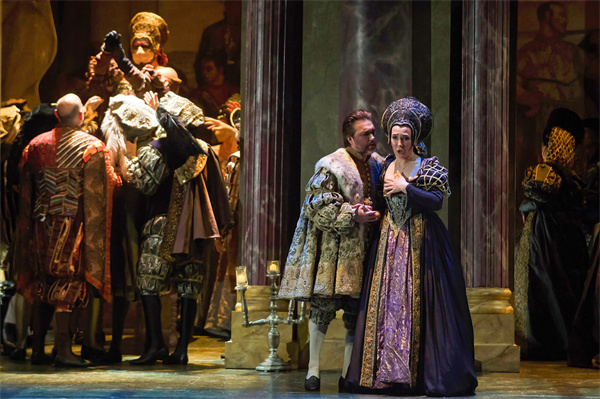
Performers rehearse Italian composer Giuseppe Verdi's Rigoletto at Cervantes theatre in Spain.[Photo/CGTN]
Italian opera
Italy has around 800 opera houses spread across its cities and countryside. The art was ignited among the masses during the Baroque period (1600–1750) first in Italy and then soon took Europe by storm.
Even if you are not a music lover, you may be familiar with the names of famous Italian composers such as Verdi, Puccini, Bellini and Rossini, and some of the world's most famous voices are synonymous with the art itself – Pavorotti, Bocilli and Freni.
As the pronunciation of the Italian language is suitable to be sung, many non-Italian musicians also created their opera works in the Italian language and Italian style, such as Austrian composer Wolfgang Amadeus Mozart, the author of "The Marriage of Figaro," "Don Giovanni," and "Così fan tutte."
China and Italy, though around 9,000 km away from each other, have opera traditions with interconnections more or less. Italian composer Giacomo Puccini's last opera "Turandot" is set in ancient China and follows Prince Calaf, who falls in love with the cold Princess Turandot. Four years ago, a Peking opera version of Turandot co-cast with Chinese and Italian performers was put on stage in several cities in Italy and won the applause of local audiences.
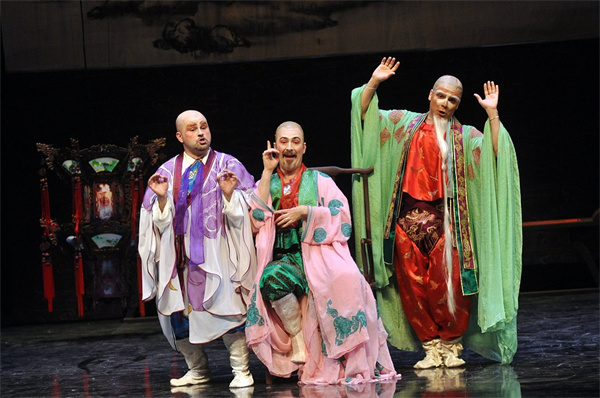
Performers rehearse Italian composer Giacomo Puccini's Turandot in Guangzhou, Guangdong Province. [Photo/CGTN]

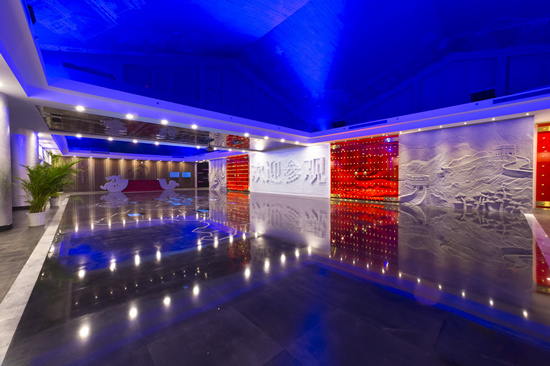 Responsibilities of the SOCAAC
Responsibilities of the SOCAAC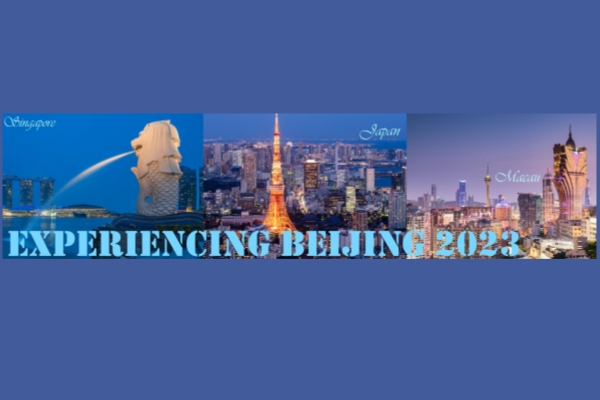 Experiencing Beijing 2023
Experiencing Beijing 2023